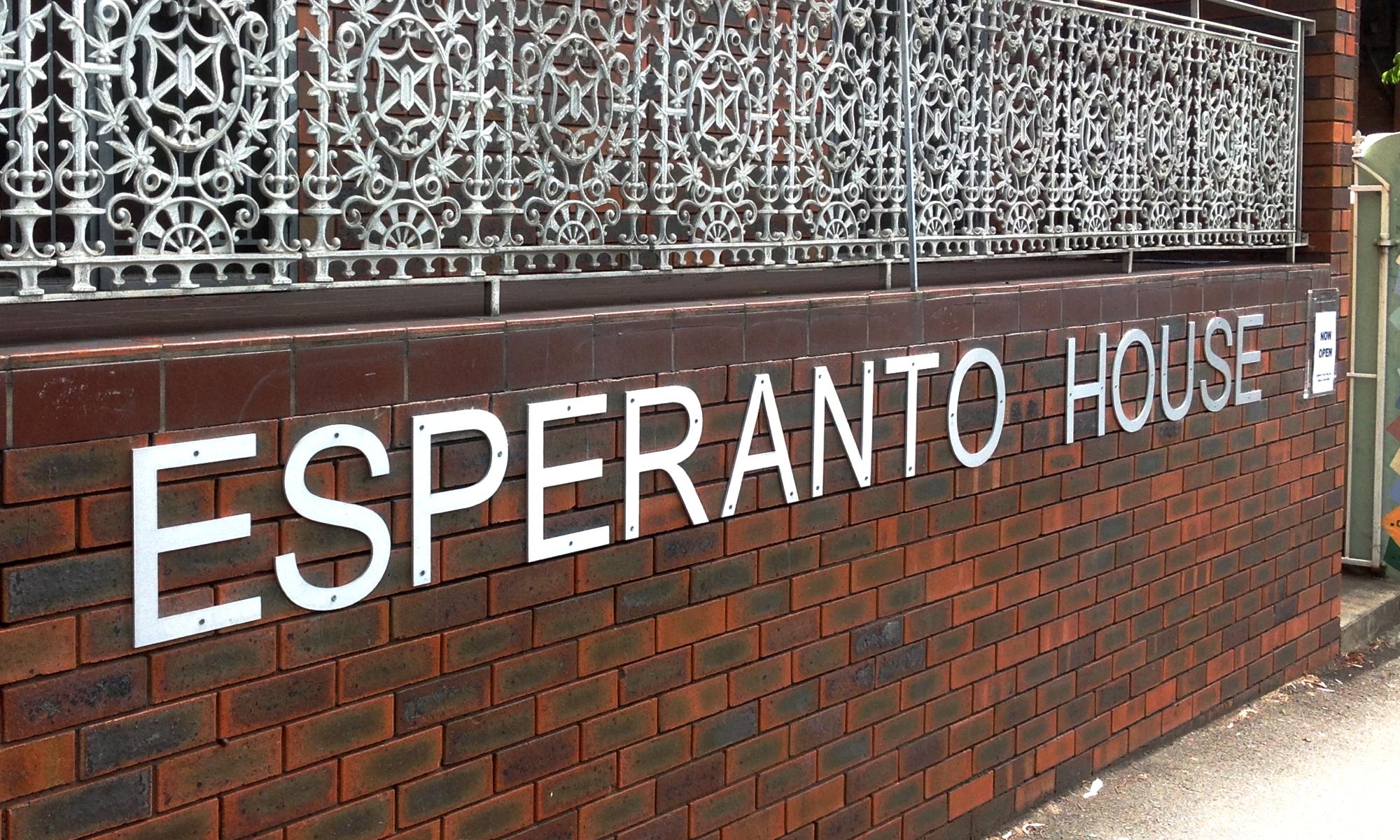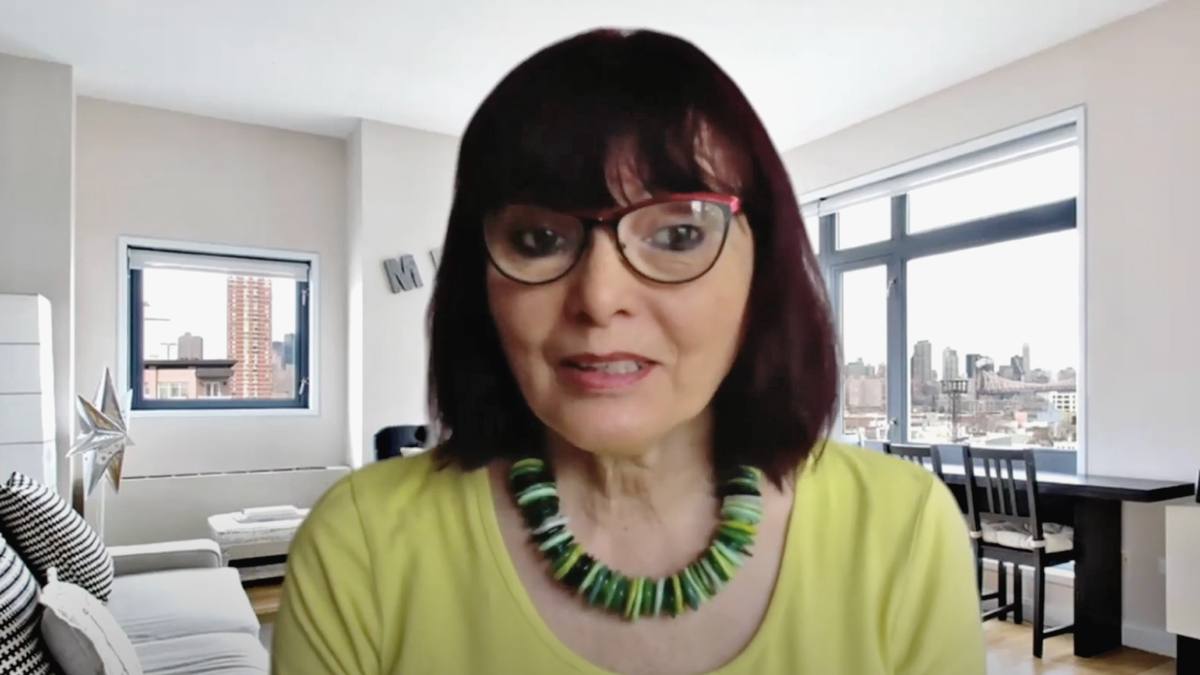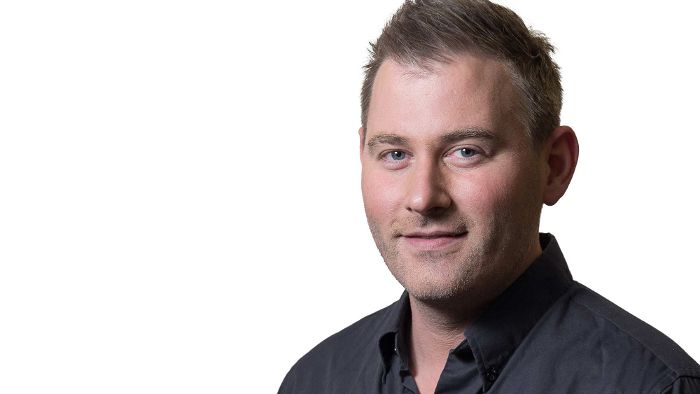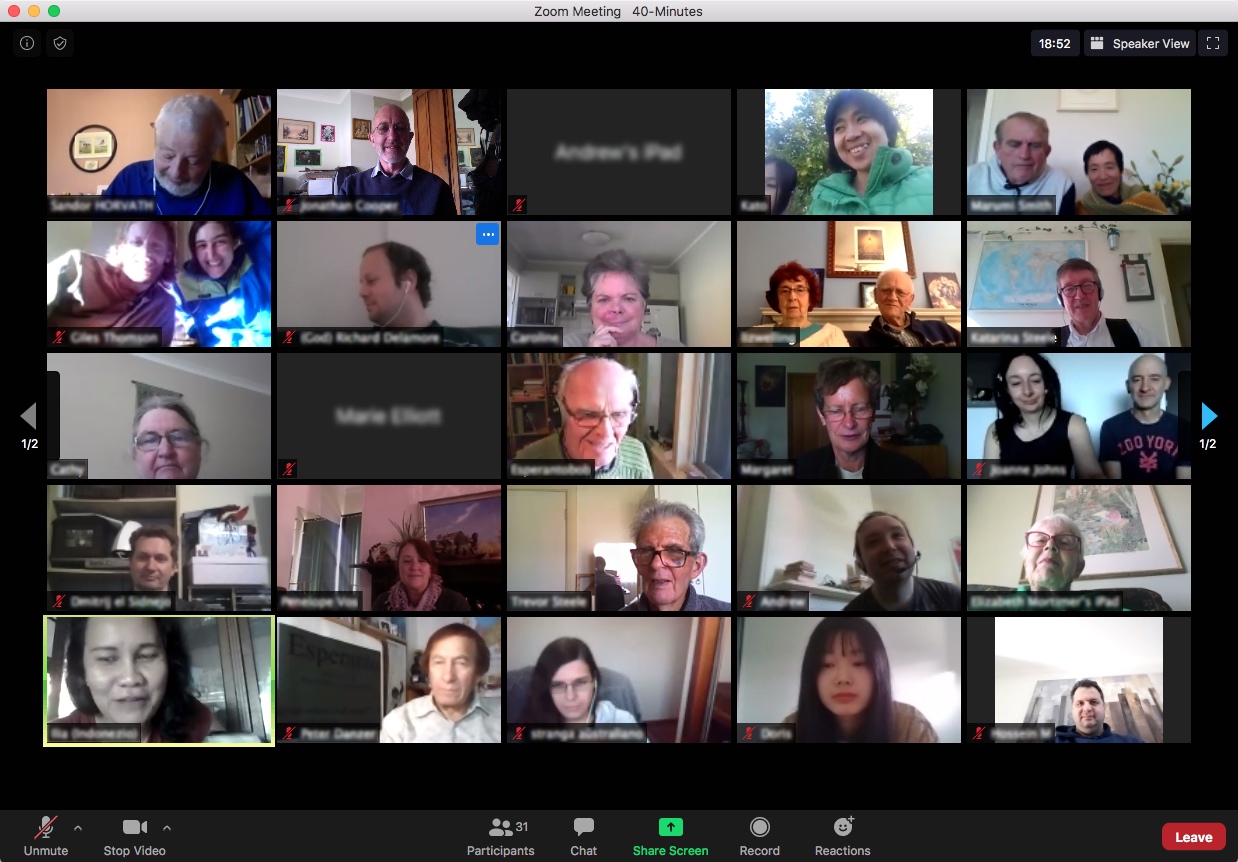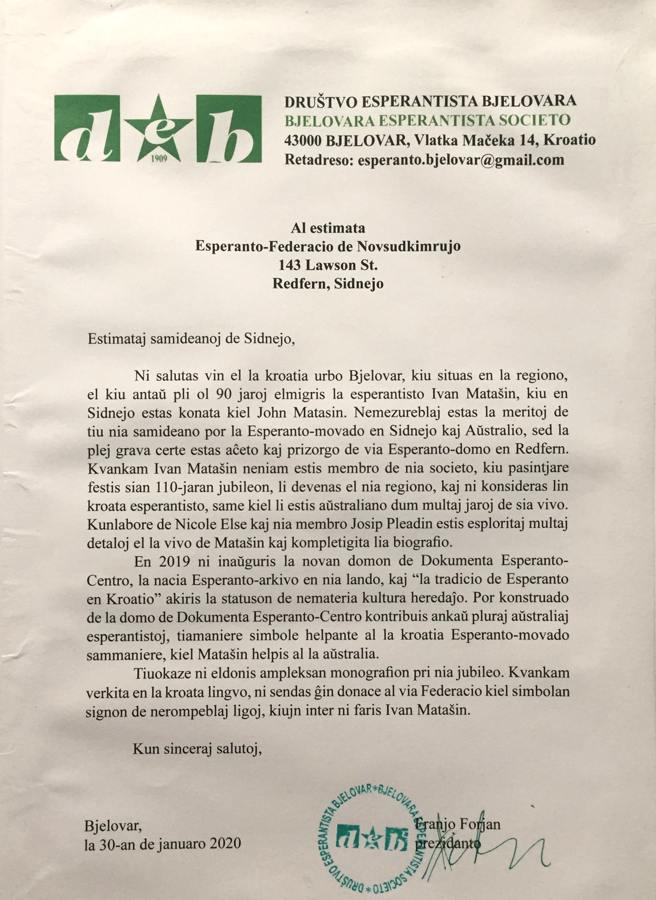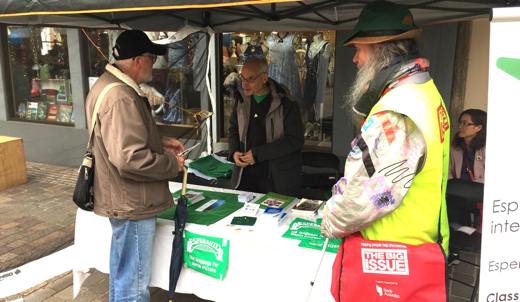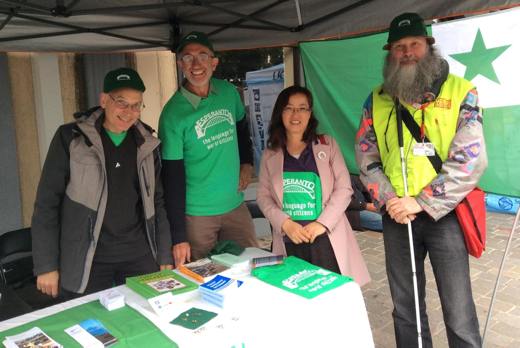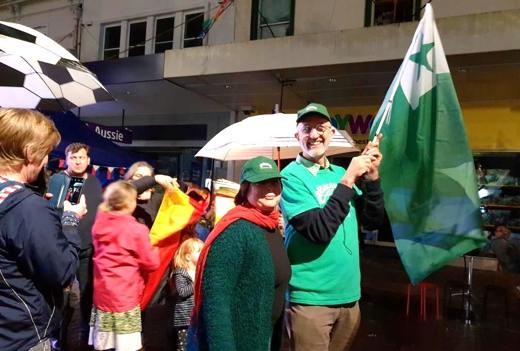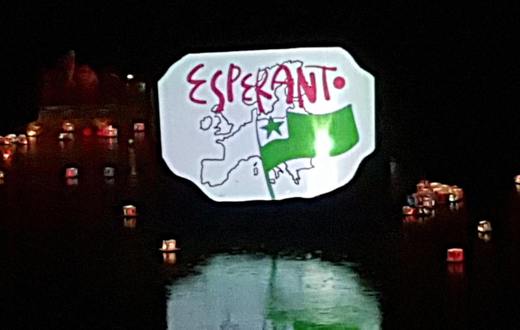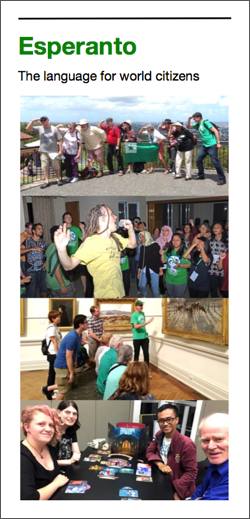On Saturday, 10 September 2022, 12 members of the Federation participated in the annual general meeting (AGM) – five at Esperanto House, and seven via Zoom (including Terry Manley from Armidale and Rainer Kurz from Germany).
Jonathan started the meeting with an “acknowledgment of country”.
After we approved the minutes of the last AGM (12 September 2021), Jonathan read the president’s report aloud. (See below.) Next, Dmitry read aloud a summary of the treasurer’s report for the 2021–22 financial year:
- The monetary value of the entire property of the Federation on June 30, 2022 was $1,900,119.83 (however, this is based on an old and certainly too low estimate of the value of the two buildings).
- The opening balance of the bank accounts was $684,108.89. The Federation earned $4,442.61 during the 12 months. So, the closing balance was $688,551.50.
- The profit (revenues plus expenses) was $5,579.61.
Since the “new” (2017) constitution states that someone who has been a board member for at least nine years can only be re-elected by a special resolution, a vote was held on whether Alan Turvey, Nicole Else, Dmitry Lushnikov and Jonathan Cooper should be allowed to be re-elected as board members. The meeting unanimously voted in the affirmative.
All members of the previous board were re-elected unopposed. Later, those board members decided unanimously that the following seven people should have the following roles:
President: Jonathan Cooper
Vice-president: Andrew Spannenberg
Secretary: Nicole Else
Treasurer: Alan Turvey
Ordinary board members: Chris Betcher, Adam Levy, Dmitry Lushnikov
Finally, each member in the meeting had the opportunity to discuss the current state and future of the Federation. Terry Manley spoke about the rear studio and gallery, and about major problems with the roof and water ingress during rain. The board agreed that we should seek professional advice on how to resolve these issues.
After the official end of the AGM, the board decided to invite the head of edukado.net, Katalin Kováts (and hopefully also her husband, Sylvain Lelarge) to visit Sydney, spend the night in the guestroom and present something at a meeting at Esperanto House, on Wednesday, 18 January 2023. This would be shortly after the Australian and New Zealand Esperanto Congress in Melbourne, where Katalin will be a special guest.
President’s report
Members and associates
Three new members joined and were welcomed during this period: Andrea Dobles, Christopher (Kit) Kelen and Jurgen Barth.
Long-time Federation member, Volo Gueltling, died on 13 December 2021. His funeral service was held at Leura Memorial Gardens Crematorium on 22 December 2021. Jonathan Cooper attended and spoke on behalf of the Federation and the Australian Esperanto Association.
Unfortunately, the process of finalising Margaret Chaldecott’s bequest is still ongoing. Her apartment in a retirement village in Lindfield (from the sale of which the Federation was to be given 1/5 of the proceeds) has still not been sold. The complication is that the entire complex is on the market. It appears that there is nothing at this stage that can be done to expedite the process.
In response to the passing of Hazel Green, an active and much loved Esperantist from Toowoomba (23 August 2021), Jonathan wrote a letter of condolence to Hazel’s husband, Paul, on behalf of the Federation.
Events
Esperanto House opened to members and the public for the first time since the beginning of the COVID-19 pandemic, on Saturday, 18 December, for a celebration of Zamenhof Day. Jonathan Cooper bought a cake and made the icing. Chris Betcher organised an activity, which was well received, with boxes, locks and clues to find a “treasure”.
Saturday evening meetings (“Public Esperanto Learning”) recommenced on 29 January 2022. On 23 April, the name of these were changed to “Esperanto Book Club”.
Adam Levy has agreed to teach Esperanto to beginners on Saturday evenings at 6pm.
Manly Esperanto Club recommenced its fortnightly meetings, outdoors opposite Manly Beach at South Steyne, on 16 October 2021.
Central Coast and Newcastle Esperanto Clubs recommenced its monthly meetings, at Wyong Milk Factory, on 15 May 2022.
An Esperanto camping weekend, at Wyee, was held on 11–12 December 2021.
The Australian and New Zealand Esperanto congress and summer school, which was supposed to be held in Sydney (Sancta Sophia College, Camperdown) in January 2022 was entirely virtual, via Zoom.
A successful joint language festival (Sydney and Surabaya, Indonesia) was held on 19 February 2022. Jonathan Cooper presented Esperanto by Zoom. Ario Bimo Utomo from Indonesia wrote a thank-you message.
Teaching material
The Federation bought 20 copies of the new book Enjoy Esperanto. One copy was put into the library, another was given to director Nicole Else, and the remaining copies made available for sale.
Promoting Esperanto
There have been discussions about how to effectively promote Esperanto. Buying a block of land and creating a temporary (or permanent) “Esperanto village” was one idea, although this raises the question, how best to promote an Esperanto village. Another possibility was to buy a campervan, have it covered in signage promoting Esperanto, and hire it out.
In November 2021, the Federation bought 100 green pens, with “ESPERANTO NSW / Esperanto House, 143 Lawson St Redfern / esperantonsw.org.au” inscribed on them. One is to be given to each member and others donated as promotional gifts.
The chess club, which has been operating on Saturday evenings, at the same time as the weekly Esperanto event, had another tournament. This time, instead of a cash prize, the Federation bought a trophy and had it engraved with the name of the winner.
The board welcomed the idea of having some magnetic signs (60cm x 30cm) made to promote Esperanto, suitable for placing on a car door. Jonathan Cooper also presented this idea to AEA, the Australian Esperanto Association (in his role as vice-president). AEA ordered 3 signs at $29 each, as a test. These were delivered to the treasurer of AEA, Heather Heldzingen, in Melbourne, because Jonathan was going to be in Canada when they arrived.
In December 2021 Nicole Else contacted a Melbourne journalist about Marcel Leereveld, and subsequently an article, ‘Use your brain’: 103-year-old radio host still going strong, appeared in the newspaper The Age .
Nicole Else also joined a Facebook group for NSW language teachers, and has interacted with other members to present to idea of using Esperanto as a “springboard” language, as well as a valuable language in its own right. There has been limited interest so far.
Public communications
Two new domain names for the website have been added: “esperantohouse.au” and “esperantonsw.au”, mainly to stop them being hijacked and held for ransom. The Federation may change the website to one of these as the canonic address, once the public becomes more used to domain names without “.org”, “.com” etc.
Only one issue of Telopeo has been published since the 2021 Annual General Meeting, on 31 December 2021.
A styleguide, in Esperanto, Stilgvidilo por Telopeo kaj aliaj komunikiloj, was created by Jonathan Cooper and put onto Google Drive
Guest room
Two Ukrainians stayed in the guest room for two weeks. The board previously agreed to let them stay free of charge if they spent at least an hour a day studying Esperanto. Dmitry Lushnikov nevertheless thinks it should only be a suggestion as they have experienced many difficulties during the war in Ukraine. If future Ukrainians request accommodation, the Federation will just ask them to speak at one of our meetings, either in Ukrainian with translation provided by Dmitry Lushnikov, or in English.
Apart from these two, the guest room has not been used by overseas Esperantists, presumably because of the pandemic, but occasionally by members, including Terry Manley from Armidale, and Jonathan Cooper, en route to Canada.
Buildings
Work was carried out to the upper floor of Esperanto House, including fixing the locks on the balcony doors, painting, and the installation of LED lights. Three white bookcases were also bought and assembled for the library.
Jonathan arranged for a commercial real estate to give a market appraisal for the studio and gallery on Little Eveleigh Street. Alan Turvey wrote to the tenant, Hugh Ramage, and Hugh answered, listing things that should be fixed or renovated. It was discussed that it would be much better if the premises were vacant, so that the renovations could more easily take place. Chris Betcher suggested that a list of things to be done should be made with estimated cost. Chris also suggested that we hire a project manager. It was decided to give Alan authority to negotiate with Hugh.
Investment
Much discussion has occurred among board members about how best to invest the money in the Federation bank accounts ($686,480 as at 31 July 2022). Options include:
- Buying a block of land, on the Central Coast or a similar distance from Sydney, and putting cabins on it, suitable for camping trips for Esperantists
- Shares
- A managed fund
- Buying a home unit in regional NSW and renting it out
Several board members expressed doubt whether buying land would really be a wise decision. Chris Betcher contacted a friend for financial advice. The friend stressed the importance of considering the mission of the organisation. Maybe $50,000 could be invested in shares. Bank deposit is the safest. He pointed out that property prices will probably fall.
Two other matters
The Federation bought 20 copies of the new book Enjoy Esperanto. One copy was put into the library, another was given to committee member Nicole Else, and the rest made available for purchase.
Junulara Esperantista Burunda Organizo asked the Federation for a donation towards equipment for video-making. The amount of $1100 was paid shortly after 3 October 2021, via UEA (Universala Esperanto-Asocio).
Jonathan Cooper
10 September 2022
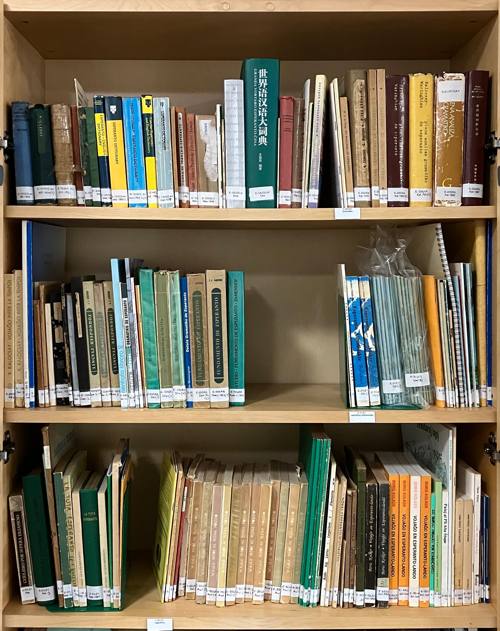 We are happy to inform you that the library at Esperanto House is finally ready to enable members to borrow from it. After 18 months of weekly work, all 2700+ books (and most of the periodicals) are catalogued, labelled, stamped and sorted on the shelves. The plan is to eventually set up an online loan system, but until then, there is a manual system, using a book. However, you can now see the catalogue as an online spreadsheet, at bit.ly/biblioteko-katalogo.
We are happy to inform you that the library at Esperanto House is finally ready to enable members to borrow from it. After 18 months of weekly work, all 2700+ books (and most of the periodicals) are catalogued, labelled, stamped and sorted on the shelves. The plan is to eventually set up an online loan system, but until then, there is a manual system, using a book. However, you can now see the catalogue as an online spreadsheet, at bit.ly/biblioteko-katalogo.